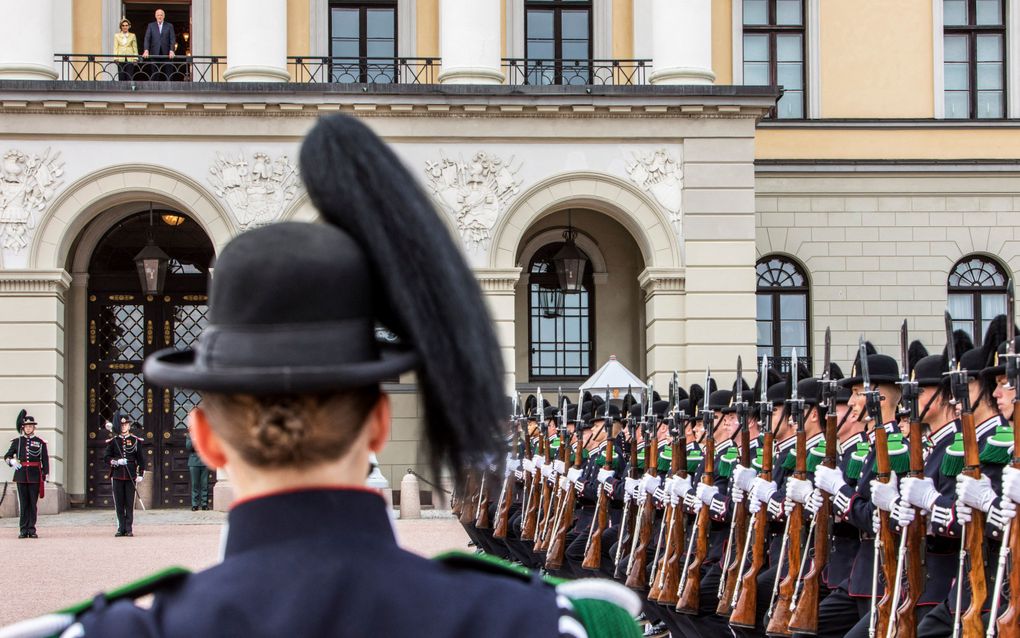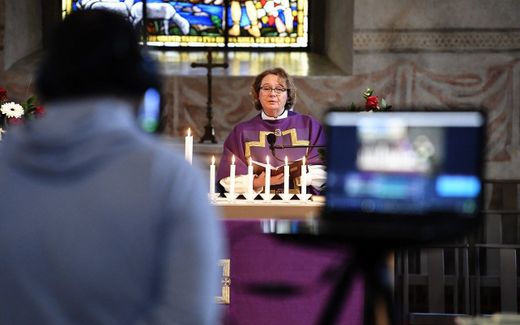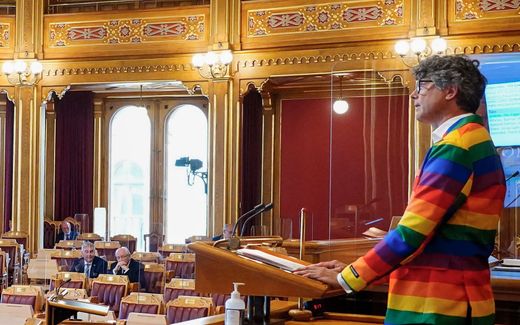Norwegian Ministry of Defence wants investigation into religiousness of armed forces

King Harald and Queen Sonja (Up L) look on as members of the Norwegian Royal Guard parade in front of the Royal Palace in Oslo, on August 23, 2018. The guard is a battalion of the Norwegian Army. Photo AFP, Ole Berg-Rusten
Northern Europe
The bond between the Norwegian armed forces and the Church of Norway is too close, thinks a troop commander. The Council of Ethics of the Norwegian Defence sector is now looking into the subject.
The role of religion in the Norwegian armed forces became the topic of conversation after Stian Husby, a lieutenant and troop commander in the Norwegian army, wrote a blog in which he criticised the prominent role that Christianity plays in the army.
Husby writes that he recently participated in a battalion line-up where the priest preached and led the battalion in prayer. "It was made clear that one does not have to join in prayer, but the soldiers were not given the opportunity to leave. You became a passive participant in a religious ritual performed in a state framework, whether you wanted to or not ", it is stated in the article.
Husby also refers to another example. When he graduated from the War School in 2020, the closing ceremony was held in the chapel at Akershus Fortress, with both prayer and the sermon from one of the Armed Forces' employed priests, he writes.
Husby does not only have a problem with the ceremonial aspects of Christianity in the armed forces. "Priests, imams and humanists are employed in what is called the Armed Forces' Faith and Belief Corps. The employees in the corps generally carry a high officer rank, even though they do not have the same education as other officers", writes the lieutenant. "But just as I should not be able to skip most of the theology education because I am a fully trained officer, theologians should not be able to do the same with the officer education."
Support
All these issues come at a time when support for organised religions in Norway is falling year by year, writes Husby. "Only 47 per cent of Norwegians over the age of 16 state that they belong to a religion." That makes sense, according to the lieutenant. "It is a natural development. Questions about how the world and man work were at one time answered by religion. Today we have detailed scientific answers with a much higher degree of resolution."
Although the state and the Church of Norway officially separated at the end of 2016, Husby thinks that, in reality, the army is still a Christian organisation and that that should not be the case "Religion is a personal matter, and it is time for it to be so in the Armed Forces as well."
Rituals
After the column was published, the Council on Ethics for the Defense Sector received an inquiry from the Ministry of Defense to assess the commentary from Husby. "We have been asked to assess and discuss the justification of religious rituals in the armed forces, and especially if the right to exemption is real", says Kjersti Fjørtoft to Norwegian daily Vårt Land.
In the ministry's inquiry to the Council, they come up with proposals for issues that the Council can discuss, for example, "whether a clearer distinction should be made between what are common welfare benefits for soldiers and what is optional denomination-specific activity".
Eystein Kvarving, who is the head of communications for the Chief of Defence, said in a radio show that religious elements in the Armed Forces should be voluntary. "When Stian describes that it is not experienced like that, then it is something we have to investigate", he said.
Different worldviews
Fjørtoft says that they are now working on formulating an answer to the ministry. Internally, they have discussed the topic. "We think this is an important issue to put on the agenda. It raises questions about freedom of religion and freedom of choice, but also questions because church and state have officially separated. It is also important because we live in a pluralistic society where people have different religions and worldviews", says Kjersti Fjørtoft.
On a question from Vårt Land whether Fjørtoft has the impression that soldiers do have real freedom of choice through religious elements, she answers: "This is an issue we are going to discuss. But we agree that mandatory joint seminars should not be denominated and that the right of reservation must be properly safeguarded".
However, Fjørtoft says that the council "recognises that there is a need for rituals and ceremonies that contribute to creating identity and unity, as well as promoting fundamental values."
Related Articles






